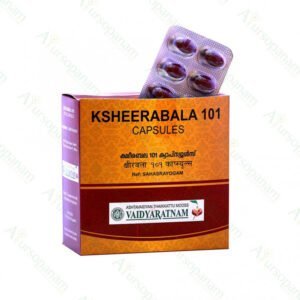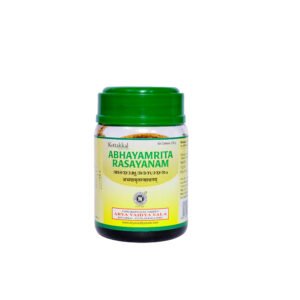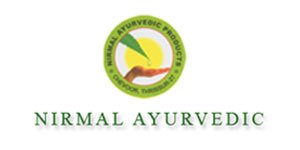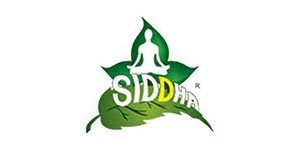Chyavanprasam Kashaya is a value-added modification of the traditional Chyavanaprasa Avaleha formulation. Mentioned in the context of rejuvenatives in Ayurveda classics, it has Amla(Indian gooseberry) as its main ingredient. Coupled with other select drugs with Nourishing, Anti-inflammatory, Digestive And Appetite-inducing properties, this product is ideal for Diabetic Patients for its immunity enhancing and rejuvenating properties.
Features & Benefits
- The traditional formula of Chyavanprasa avaleha consists of sugar candy and honey in considerable amounts. This limits its use in people with high blood sugar levels. Chyavanaprasa K Tab is a non-sweet adaptation of the formula, particularly beneficial for enhancing immunity, vitality and vigour in individuals with insulin-dependent diabetes.
- Nutritional analysis* of this food supplement shows that it is a good source of Vitamin C, Iron, Proteins, Calcium, Sodium and Potassium in their naturally occurring forms that can be easily absorbed by the body. The ready anti-oxidant action of the formula helps in ridding the body of inflammation and metabolic toxins.
- Amla or Indian Gooseberry, a rich source of Vitamin C, Iron and Calcium, forms the base of this product. It is processed with other potent drugs that increase appetite, promote digestion and absorption and offer deep nourishment to tissues. The product rejuvenates from within, and gracefully reverses the process of ageing, premature greying, wrinkles and age spots.
- Anaemia or deficient haemoglobin is cited as the prime cause of ill-health in menstruating women. It manifests as physical and mental fatigue, aches and pains, bloating, hair fall and sallow skin. Studies have proved that Vitamin C encourages the uptake of iron from the body. Chyavanaprasam Kashaya Tablet, a rich source of both Vitamin C and iron* is your one-stop solution for all problems arising from Anemia.
- Ingredients like Nutgrass, Holostemma creeper, Shatavari and Arrowroot, traditionally acclaimed for their nutritive values, make this product efficient in supplementing your dietary intake of proteins, calcium, sodium and potassium. Its continued use improves skin complexion, strength and stability of bones, hair, teeth and nails.
- Chyavanaprasam Kashayam purifies blood, eliminates toxins and strengthens liver function. It promotes respiratory health and improves blood circulation. Improves memory and concentration.
- It is an excellent aphrodisiac ensures reproductive health in both men and women.
Dosage and Instructions
Adult: 15-20 ml of Chyavanaprasam Kashayam mixed with 45-60 ml of boiled and cooled water, twice daily on empty stomach.
Child: 10-15 ml of Chyavanaprasam Kashayam mixed with 30-45 ml of boiled and cooled water, twice daily on empty stomach.
Sugar-free rejuvenative especially suitable for Type II Diabetes patients.
Key Ingredients
Amla Indian Gooseberry (Emblica officinalis)
Embilica officinalis, the major ingredient in this formula, is highly nutritious and is an important dietary source of Vitamin C, minerals and amino acids. The dominant active constituent of the herb is a group of tannins derived from Gallic and ellagic acids, which make up a large portion of the extractable non-nutritive constituents. All of these constituents work together to enhance immunity, rejuvenate the skin, combat premature ageing and hyperacidity.
Vilwa Indian Bael (Aegle marmelos)
The alcoholic extract of the seeds shows anti-allergic activity. The fruit, rind and leaves have a high tannin content. Tannins help heal ulcers by forming a coating on the stomach mucosa.
Its high tannin content makes Bael an effective treatment for dysentery and cholera.
The bark decoction of the tree is administered in cases of malaria, while the leaves are used in jaundice.
Marmin, a coumarin isolated from the roots, has anti-inflammatory properties, which makes Bael fruit ideal for treating inflammation.
Agnimantha Sage Glory Bower (Premna corymbosa)
One among the ten important roots, Agnimantha effectively alleviates Vata dosha and Sotha (Inflammatory oedema). Chemically it is constituted by B-sitosterol, luteolin, premnine, botulin, ganikarine, premenol and ganiarine. It is useful in anaemia, inflammatory swelling, altered digestion and metabolism, haemorrhoids, bloating, cough, cold and asthma. It is particularly useful in diabetes and urinary tract disorders. Its decoction is traditionally used to restore strength and immunity after chronic fever. It is used to prepare gruels for post-partum women as it helps in restoring uterine health and stimulates lactation.
Prusniparni Sal leaved Desmodium (Desmodium gangeticum)
A decoction of the leaves is used against stones in the gall bladder, kidneys or bladder.
The leaves are applied as a poultice to the head as a treatment for headache. The roots are considered to be alterative, astringent, bitter tonic, diuretic, expectorant and febrifuge.
A decoction of the root is employed to treat kidney problems, oedema, swellings, chronic fever, coughs, biliousness, diarrhoea and dysentery; or as a sedative for children.
The roots are applied to the gums as a treatment for toothache. A decoction is used externally to clean wounds and ulcers. The whole plant is considered to be anthelmintic.
It is an acclaimed cardiotonic.
Salaparni Sticky Desmodium (Psuedarthria viscida)
Pseudarthria viscida is widely used and valued in Ayurvedic medicine, where its roots are considered to be useful in the treatment of a wide variety of ailments. It is one among the ‘Dasamoola ‘(10 roots) of Ayurveda, mentioned in most of the ancient scriptures, and is a major component in many Ayurvedic preparations.
It is used in the treatment of a wide range of conditions such as bronchial asthma, cough, bronchitis, and tuberculosis; biliousness, dyspepsis, vomiting, food poisoning and diarrhoea; nervous dysfunction, heart conditions, diabetes mellitus, general debility, fevers, worms, haemorrhoids and rheumatism. It is also used in the treatment of insect bites and is used against inflammations. Since it effectively arrests bleeding and alleviates oedema, it is considered a valuable panacea for heart diseases and blood disorders. The root juice is given as a nasal drop in case of headache and hemicranias. The root of the plant has been reported to contain leucopelargonidin, flavonoids and proteins.
Brihati Yellow Berried Nightshade (Solanum xanthocarpum)
Yellow Berried Nightshade is helpful in treating respiratory disorders like bronchial asthma, cough and bronchitis. It facilitates the treatment of gastrointestinal disorders like constipation and flatulence, because of its laxative and carminative properties. Called ‘Vyaghri’ in Sanskrit, it is the drug of choice in chronic and debilitating coughs which may be productive or non-productive.
Kantakari Forest Bitterberry (Solanum Anguivi)
It is highly polymorphic and variable in its plant structure, fruits and leaf characters. The domesticated species are consumed as leafy and/or fruit vegetables that are rich in essential minerals and vitamins and are recommended as a dietary staple or supplements for nursing mothers, the young, the aged, and anaemic patients. The plant is used as a therapeutic agent for various diseases. The roots are carminative and expectorant useful in coughs, cultarrhal affections, dysuria, colic, nasal ulcers, the ingredient of Dasamula, asthma, difficult parturition, toothache, cardiac disorder, worm complaints, spinal chord disorders, nervous disorders and fever. The leaves and fruits rubbed up with sugar are used as an external application for the itch.
Gokshura- Land Caltrops (Tribulus Terrestris)
The plant contains saponins, which, after hydrolysis, yield the sapogenins diosgenin, gitogenin, chlorogenic, ruscogenin, 25D-spirosta-3 and 5-diene, among others. The seeds contain the carboline alkaloids harmane and harmine. Harmol is also found in the herb. These constituents render the herb its therapeutic properties.
The extracts of this herb are useful in treating low libido and erectile dysfunction.
The herb is also used to treat kidney dysfunction, urinary disorders and diseases of the genito-urinary system.
Gambhari English Beechwood/ Goomar Teak (Gmelina arborea)
Gambhari is a known bitter tonic and its fruits are general tonic in weakness. It treats Vata and Pitta disorders predominantly. The roots, fruits and leaves of Gambhari have great medicinal value. Therefore traditionally it was widely used as anthelminthic, anti-microbial, anti-diabetic, anti-ageing, analgesic, diuretic, hepato-protective and anti-epileptic agents. Its roots comprise of a thick yellow coloured oil, resin, alkaloid and little benzoic acid. Fruits consist of butyric acid and tartaric acid, sugar and a little tannin. Its leaves contain luteolin, which is an anti-oxidant classified as flavonoid.
Bala Country Mallow (Sida cordifolia)
Known to balance all the doshas (bodily humours that make up one’s constitution), it is a health tonic with rejuvenating, anti-inflammatory, libido-enhancing and fat-burning properties. Ephedrine is one of the alkaloids present, which has fat-burning properties. The herb also contains phytosterol and potassium nitrate. The essential oil has rejuvenating properties, which aids in nervine disorders and mental debility.
The oil has anti-inflammatory properties which relieve joint and muscles aches.
Country Mallow is known to stimulate sexual organs and enhance the male libido.
In recent times, the herb is being used in weight loss supplements.
Mustha Nutgrass (Cyperus rotundus)
Nut Grass is used to treat digestive disorders, menstrual irregularity and nausea. It also promotes liver detoxification and healing. Cyprine is the principal constituent in the plant, which gives Nut Grass its pharmacological properties. Nut Grass is beneficial in treating nausea and digestive problems. It is used as an analgesic for menstruation pains. The herb has a positive effect on the liver, facilitating its detoxification and treatment.
Jeevanthi (Holostemma ada-kodein)
Jivanti is one of the most important ingredients in several traditional polyherbal formulations of the Indian system of medicine, such as Ashoka Gharita, Ashwagandhadi Gharta, Anu Thaila. The plant parts when gently bruise yield white latex exudate.
The roots are sweet, ophthalmic, emollient, aphrodisiac, expectorant, galactagogue and balance the Tridoshas. It is used to cure nausea, ulcers, itching, leucoderma, and vesicular calculi. The plant is highly specialized for the richness of a diverse array of amino acids such as alanine, aspartic acid, glycine, serine, thereonine, valine. The alpha amyrin, sitosterol and tepanoid sugars present in the tuberous roots are ascribed for having the medicinal properties. Reddy et al. have elucidated the anti-diabetic property of the root tuber against the induced diabetes mellitus in rat model. The plant is also being reported to have pronounced anti-bacterial, antipyretic, anthelmintic, hepatoprotective and hypoglycemic effect.
Vidari Alligator yam (Ipomea mauritiana)
In India, Alligator Yam is used as a general tonic, to treat diseases of the spleen and liver and prevent fat accumulation in the body. The rhizome of the herb contains beta-sitosterol which is an anti-oxidant. Ergonovine, an alkaloid found in the herb, is used to stop menstrual bleeding. The herb is used to treat the enlargement of the liver and spleen.
Those suffering of menorrhoea, abnormally long and heavy menstrual periods at regular intervals, benefit from taking the herb. As a general tonic, Alligator Yam is used in the treatment of cough and gastrointestinal disorders. The herb is also known as a lacto-stimulant and libido enhancer.
Satavari Asparagus (Asparagus racemosa)
In Sanskrit, ‘Satavari’ means ‘she who possesses a hundred husbands,’ implying its ability to help support fertility and vitality. It regulates hormonal secretion and acts as a galactagogue, which promotes lactation in nursing women.
Its principal constituents include saponins, alkaloids, proteins and tannins. The plant contains triterpene saponins called Shatavarin I-IV, which support the body’s own natural production of estrogen. The dried root contains a large amount of saccharine, mucilage and minerals, which heal gastritis, hyperacidity and stomach ulcers.
The herb helps in digestion and alleviates ulcers and other inflammatory stomach ailments. Asparagus can restore hormonal balance in women who have fluctuating hormonal levels due to menstruation and menopause. It enhances fertility and regulates the menstrual cycle. It is a natural diuretic that reduces water retention.
Aswagandha Winter Cherry (Withania somnifera)
Literally translated, the Sanskrit name for Winter Cherry, Ashvagandha, means ‘the smell and strength of a horse’. Winter Cherry is a nervine tonic, an anti-oxidant and also possesses anti-inflammatory properties. It has been used in Ayurveda to boost the immune system and promote overall well-being.
The root contains steroidal compounds which include the lactones Withaferin A and carbon-27-glycowithanolide, known collectively as the Withanolides. The Withanolides are responsible for the varied medicinal applications of the herb. Winter Cherry also contains a fair amount of alkaloids including tropine, pseudotropine, isopelletrine, anaferine and saponins, which impart medicinal properties to the herb.
Winter Cherry is an unique herb with anti-stress and adaptogenic properties that improves physical and mental fitness and helps with daily stress management. It is a powerful anti-oxidant, which scavenges free radicals in cells that are responsible for premature ageing. Winter Cherry has proven anti-inflammatory activity, which helps in the management of inflammatory joint disorders.
Punarnava Spreading Hogweed (Boerrhavia diffusa)
The flavonoid arbinofuranoside, present in Spreading Hogweed, lowers serum uric acid, which is helpful in treating urogenital disorders. Spreading Hogweed is beneficial in treating urinary tract infections. The herb is also administered to patients suffering from nephritic syndrome. It is also helpful in the treatment of asthma and inflammatory conditions like rheumatism.
Guduchi (Tinospora cordifolia)
Guduchi is a part of the Rasayanas (traditional rejuvenators and important daily tonics) category of Ayurvedic plants. As per the Charaka Samhita, Ayurveda’s primary text, it is a Medhya Rasayana or mental rejuvenative.
The stem contains alkaloidal constituents, including berberine and bitter principals, including columbin, chasmanthin, palmarin, tinosporon, tinosporic acid and tinosporol. These chemical constituents render the herb its therapeutic properties.
The herb helps increase the effectiveness of the protective white blood cells and builds up the body’s own defence mechanism. Guduchi is useful as a diuretic, helps to remove urinary stones and assists in the management of urinary disorders, including urinary tract infections. It is helpful in treating liver damage, viral hepatitis and alcohol, medical or chemical poisoning.
Vasa Malabar Nut (Adathoda vasica)
Malabar Nut contains the pyrroquinazoline alkaloids, including vasicine, vasicol and vasinone along with other minor constituents. The alkaloids present in the plant show significant protection against allergen-induced bronchial obstruction. It exhibits anti-inflammatory, antitussive and bronchodilatory action, which eases congestion and coughing by loosening and thinning mucus in the airways.
Bhoomi Amalaki Gale of the wind (Phyllanthus niruri)
Phyllanthus Niruri is in traditional medicine for more than 3000 years. It belongs to a family of Euphorbiaceae and commonly known by the name of carry me seed, stone breaker, gale of wind, etc. It is a branching annual herb of 30 60 cm height widely spread throughout tropics and sub-tropics as a weed. Phyllanthus niruri is gaining momentum for its hepatoprotective, anti-carcinogenic, anti-bacterial, anti-viral, anti-inflammatory and more activities as it contains different combinations of secondary metabolites, which render them medicinal properties. The major class of bioactive compounds like alkaloids, flavonoids, lignans, sterols, tannins, triterpenes and volatile oils has been isolated. Lignans like phyllanthin and hypophyllanthin, flavonoids like quercetin were isolated from the leaves of P. niruri.
Due to its hepatoprotective property, P.niruri extract is widely recommended to enhance the function of the diseased liver.
Agaru Agar wood (Aquilaria agallocha)
Authentic references are available for its properties of alleviating Kapha dosha in the chest region, thereby relieving cough cold and asthma; alleviating skin disorders (disinfects and encourages healing); ridding the body of worm infestations (Krumihara). These properties along with the pleasant aroma it releases on burning, makes it the perfect choice for fumigation and disinfection. It also balances Vata.
Pushkaramula (Inula racemosa)
Pushkaramula powder contains inulin, alantolactone, and iso-alantolactone which impart a number of therapeutic properties including anti-microbial, anti-catarrhal, and anti-inflammatory action.
Hareethaki Chebulic myrobalan (Terminalia chebula)
Chebulagic, chebulinic acid and corilagin are the principal constituents, which render the herb its therapeutic property. The anti-oxidant constituents of the plant, phloroglucinol and pyrogallol, have been isolated along with ferulic, vanillic, p-coumaric and caffeic acids.
Chebulic Myrobalan is used to treat flatulence, dysentery, diarrhea and constipation.
Respiratory disorders such as cough and bronchial asthma are relieved by the herb.
Pippali Indian Long Pepper (Piper longum)
Piperine is the major alkaloid found in Indian Long Pepper. Piperine is antipyretic, hypotensive and a central nervous system stimulant. As an antihypertensive and sedative, Indian Long Pepper is beneficial in treating insomnia. The herb is useful in the treatment of respiratory disorders like the common cough, bronchitis and asthma. It is also a potent digestive, which helps in treating gastrointestinal disorders like indigestion.
Draksha Black grapes (Vitis vinifera)
The anti-oxidants present in Grapes reduce the damage caused by free radicals and slacken the ageing process. Grape juice can be used to treat migraines. Grapes increase the nitric oxide levels in the blood, which prevents blood clots, thereby reducing the chances of heart attacks. in addition, the anti-oxidants present in Grapes prevent the oxidation of LDL cholesterol, which blocks blood vessels. Grapes can be used to treat asthma. The fruit is also beneficial in treating stomach disorders like constipation and indigestion.
Tugaksheeri Arrowroot (Maranta arundinaceae)
The starch from arrowroot flour has a nutrition composition of 11.9% water, 0.58% ash, 25.9% amylose, 0.14% protein, 0.84% fat, 8.7% insoluble dietary fiber, and 5.0% soluble dietary fiber. Recent study suggests that the arrowroot flour is a potential source of prebiotics.
The fragrant four (Cinnamomum verum, Eletteria cardamomum, Cinamommum tamala, Messua ferra) Cinnamon, Cardamom, Tejpat or Indian Bay leaf and Nagkesar impart aroma and therapeutic properties.
The aroma and flavor of Cinnamon comes from an essential oil extracted from the bark, which contains the compound cinnamaldehyde. The compound is used to alleviate stomach ailments. The bark oil and extracts exhibit anti-bacterial, antifungal and antiviral properties.
The chemical compounds in cardamom significantly decrease gastric secretions. The methanol extract is primarily responsible for decreasing pepsin levels. Cardamom is used in treating digestive disorders, relieving heartburn and bloating
As a hemostatic, Ironwood Tree (Nagkesar) is beneficial in the treatment of bleeding piles and metrorrhagia (irregular uterine bleeding).
The extracts of the tree are also helpful in treating respiratory disorders like bronchitis.
Specialty:
*Nutrient profile based on lab analysis : 0.13 mg Calcium, 82.18 mg Carbohydrate, 3.62 Kcal energy, 5.42 mg Total Protein, 0.36 mg Vit C, 0.77 mg Iron, 2.5 mg Potassium, 1.04 mg Sodium.
100 % Natural. Purely Herbal product. Vegetarian.





















































Ratings & Customer Reviews
Reviews
There are no reviews yet.